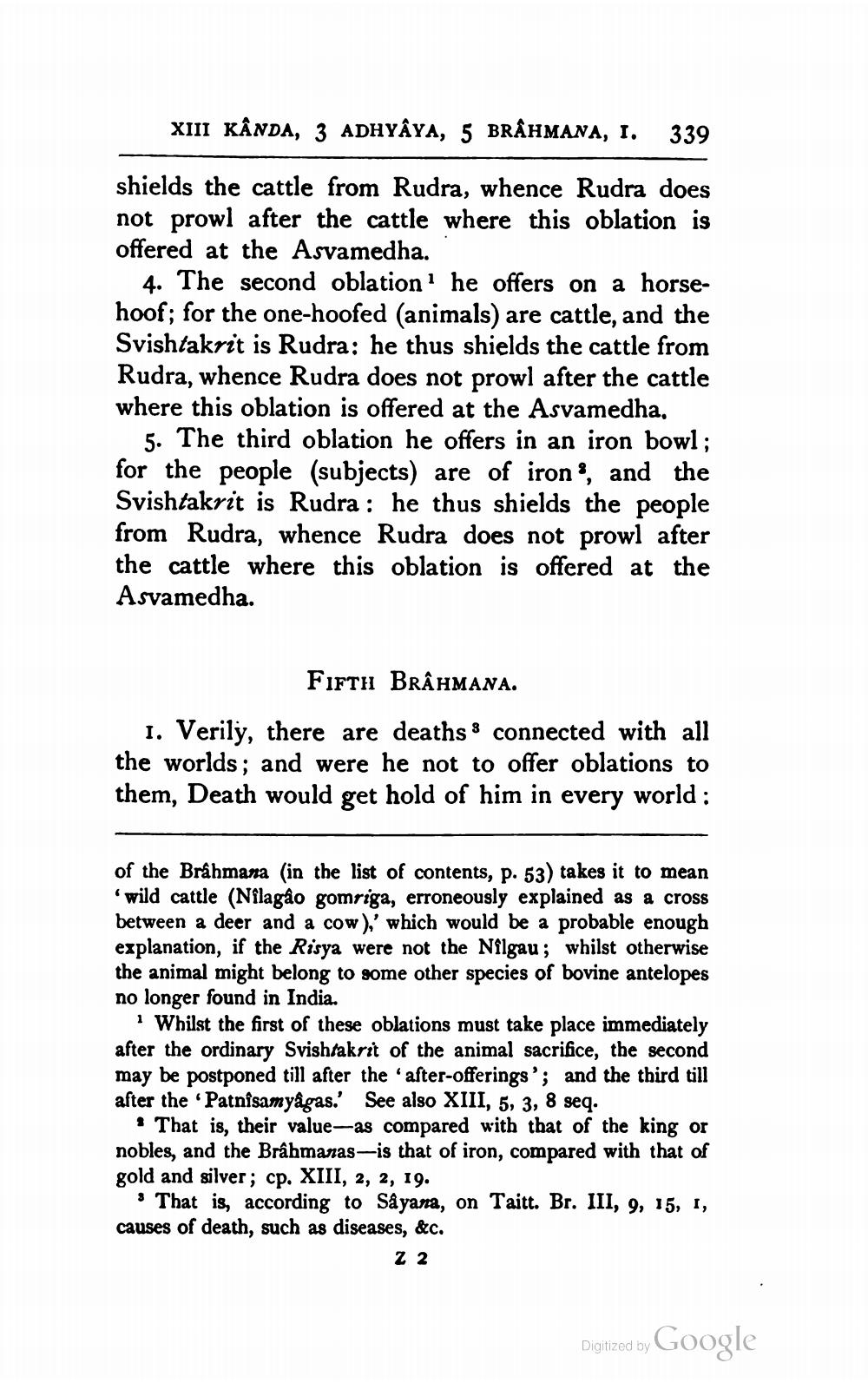________________
XIII KÂNDA, 3 ADHYAYA, 5 BRÂHMANA, 1. 339
shields the cattle from Rudra, whence Rudra does not prowl after the cattle where this oblation is offered at the Asvamedha.
4. The second oblation? he offers on a horsehoof; for the one-hoofed (animals) are cattle, and the Svishtakrit is Rudra: he thus shields the cattle from Rudra, whence Rudra does not prowl after the cattle where this oblation is offered at the Asvamedha,
5. The third oblation he offers in an iron bowl; for the people (subjects) are of iron, and the Svishtakrit is Rudra : he thus shields the people from Rudra, whence Rudra does not prowl after the cattle where this oblation is offered at the Asvamedha.
Fifth BRÂHMANA.
1. Verily, there are deaths 3 connected with all the worlds; and were he not to offer oblations to them, Death would get hold of him in every world :
of the Brahmana (in the list of contents, p. 53) takes it to mean
wild cattle (Nilagão gomriga, erroneously explained as a cross between a deer and a cow' which would be a probable enough explanation, if the Risya were not the Nilgau; whilst otherwise the animal might belong to some other species of bovine antelopes no longer found in India.
1 Whilst the first of these oblations must take place immediately after the ordinary Svishtakrit of the animal sacrifice, the second may be postponed till after the after-offerings'; and the third till after the Patnisamyågas. See also XIII, 5, 3, 8 seq.
? That is, their value-as compared with that of the king or nobles, and the Brahmanas-is that of iron, compared with that of gold and silver; cp. XIII, 2, 2, 19.
• That is, according to Sảyana, on Taitt. Br. III, 9, 15, 1, causes of death, such as diseases, &c.
22
Digitized by Google




